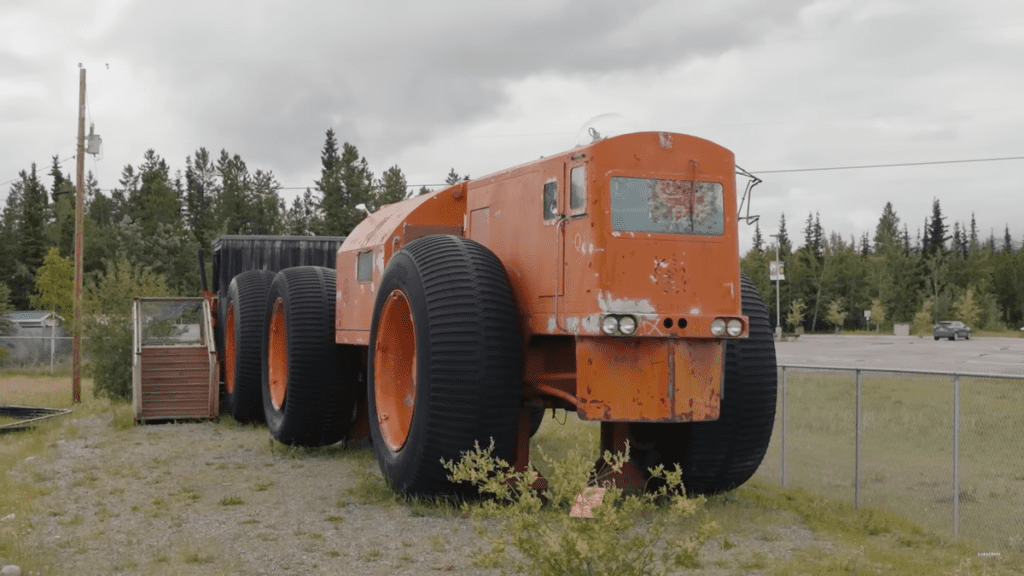The U.S. Army Once Developed An Enormous Snow Train To Conquer The Arctic

The U.S. military has spent so much money developing stuff over the years. It had super-secret spy planes, tried to train dolphins for underwater warfare and even had the smart idea of developing flying aircraft carriers. However, one if its best ideas might be this ridiculous snow train that was designed to conquer the Arctic.
Portal Axle Kit Turns Your Ford Bronco Into a Monster Truck
The U.S. army had a few experimental craft in the works in the 1950s, chief among them was a new kind of road train that could haul enormous loads around places where roads were rough, scarce or non-existent. These experimental craft included the longest vehicle ever, an overland train created to restock nuclear silos and this, the LCC-1 Sno-Train.
Designed to operate in some of the most extreme environments around, the LCC-1 was first brought to our attention via the excellent YouTuber Calum, who built a name for himself uncovering some pretty impressive forgotten machines.
The LCC-1, which means Logistics Cargo Carrier number one, was developed by the U.S. army in cahoots with Texas-based heavy equipment manufacturer LeTourneau, Calum explained in a recent upload. It comprised an enormous engine up front that housed a heated area for its operators as well as the 600 horsepower diesel motor that it needed to tow big army stuff around.
Barracks on Wheels: The Huge Army “Snow Train” That Conquered the Arctic
With that power unit, the Sno-Train could tow three trailer cars that could be piled up with a combined load of around 45 tons of military gear. That’s a pretty impressive haul, but it’s not nearly as impressive as the enormous wheels that this thing was running around on.
In order to better distribute its weight across the kinds of frozen surfaces the Sno-Train was designed for, it ran on a set of custom Firestone tires that were huge, really huge. According to Overland Trains, the vehicle used Firestone 120x48x68 tires, meaning they measured more than 10 feet tall and four feet wide. Those enormous wheels were perfect for the frozen wastes of Greenland, where the LCC-1 was deployed by the U.S. military from 1956.
The LCC-1 is the third overlanding train that Calum has explored on his channel, but he calls this one the most successful of the period, as it really did prove its worth in service over the years.
It was frequently used to carry loads to Camp Century, an Arctic research base operated by the U.S. until 1967. The Sno-Train also served in Alaska, where it was used to resupply the Early Warning Line network of radar detectors across Canada and the U.S.
When does a wheel become too big? Photo: US Army/Pictorial Parade/Archive Photos (Getty Images)
The massive machine was even said to have saved someone’s life during a storm, offering a child with appendicitis the only route to hospital thanks to its rugged capabilities. That go-anywhere attitude also meant the Sno-train was called on to rescue another massive overlanding train that had gotten stuck in the Arctic in the early ’60s. What a machine.
However, all that off-road talent wasn’t enough to keep the Sno-Train in service, and it was taken out of service in 1962. Now, the remnants of the Sno-Train can be found at the Yukon Transportation Museum in Whitehorse, Yukon, where it survives alongside several of its trailers still complete with the original 10-foot tires. It’s quite the site.



